Click here and press the right key for the next slide.
(This may not work on mobile or ipad. You can try using chrome or firefox, but even that may fail. Sorry.)
also ...
Press the left key to go backwards (or swipe right)
Press n to toggle whether notes are shown (or add '?notes' to the url before the #)
Press m or double tap to slide thumbnails (menu)
Press ? at any time to show the keyboard shortcuts
Liberals vs Conservatives
Do cultural differences in moral psychology explain political conflict on climate change?
Plan:
Work through Feinberg & Willer, 2013 ‘The Moral Roots of Environmental Attitudes’
The story so far ...
1. ‘Moral convictions and the emotions they evoke shape political attitudes’
2. There are at least two fundamental domains of human morality, including harm and purity.
3. ‘liberals and conservatives possess different moral profiles’
‘believers [in climate change] are more likely than skeptics to report that they intend to behave in climate-friendly ways (r = .32) but on actual behaviors the difference is modest (r = .17).’
In other words, knowing whether people are skeptics or believers tells you surprisingly little about their willingness to engage in actions that matter’
‘For example, the difference between believers and skeptics in terms of their willingness to put a price on carbon is relatively small (r = .20)’
(Hornsey & Fielding, 2020, p. 21).
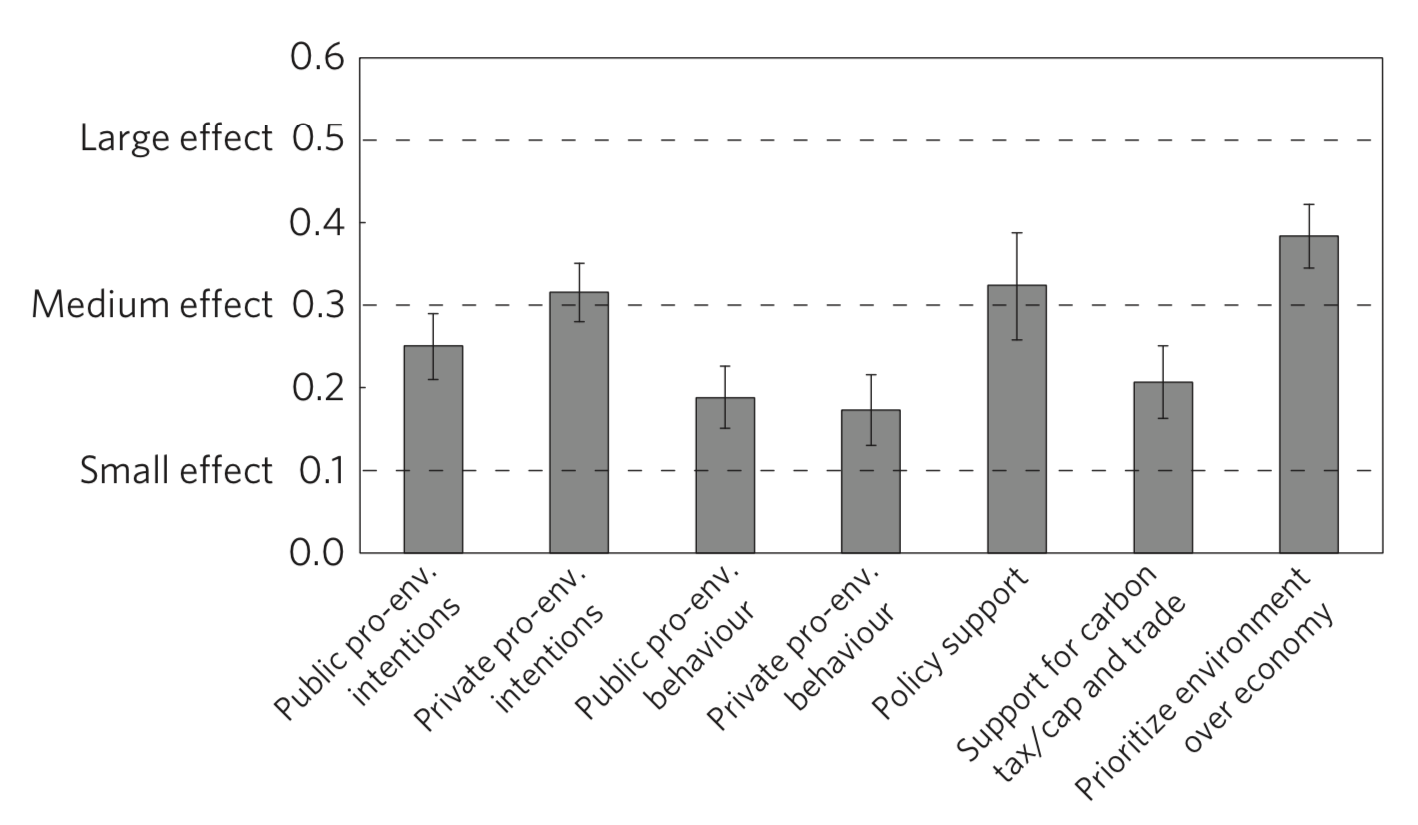
Hornsey, Harris, Bain, & Fielding (2016, p. figure 3)
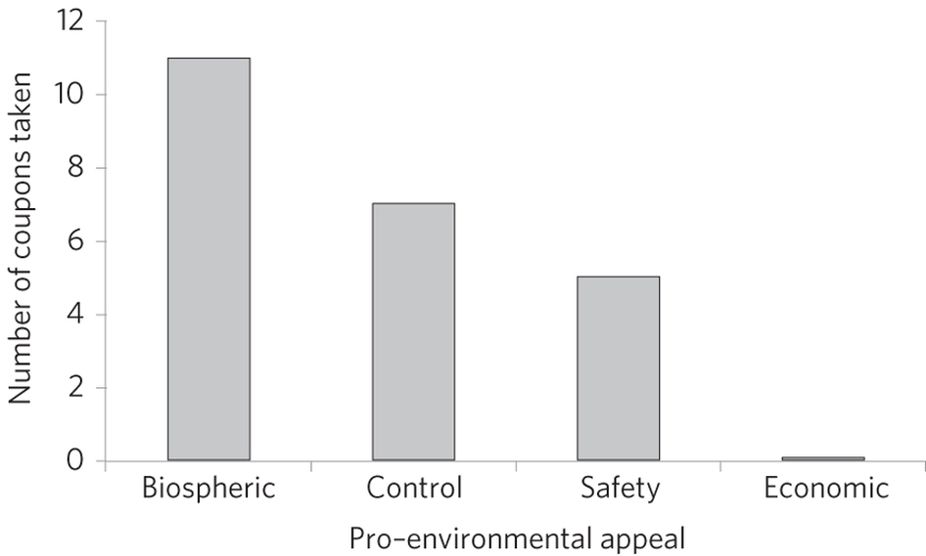
Bolderdijk et al, 2013 figure 1
The story so far ...
1. ‘Moral convictions and the emotions they evoke shape political attitudes’
2. There are at least two fundamental domains of human morality, including harm and purity.
3. ‘liberals and conservatives possess different moral profiles’
3
‘liberals and conservatives possess different moral profiles regarding the five moral foundations’
Feinberg & Willer, 2013 p. 2
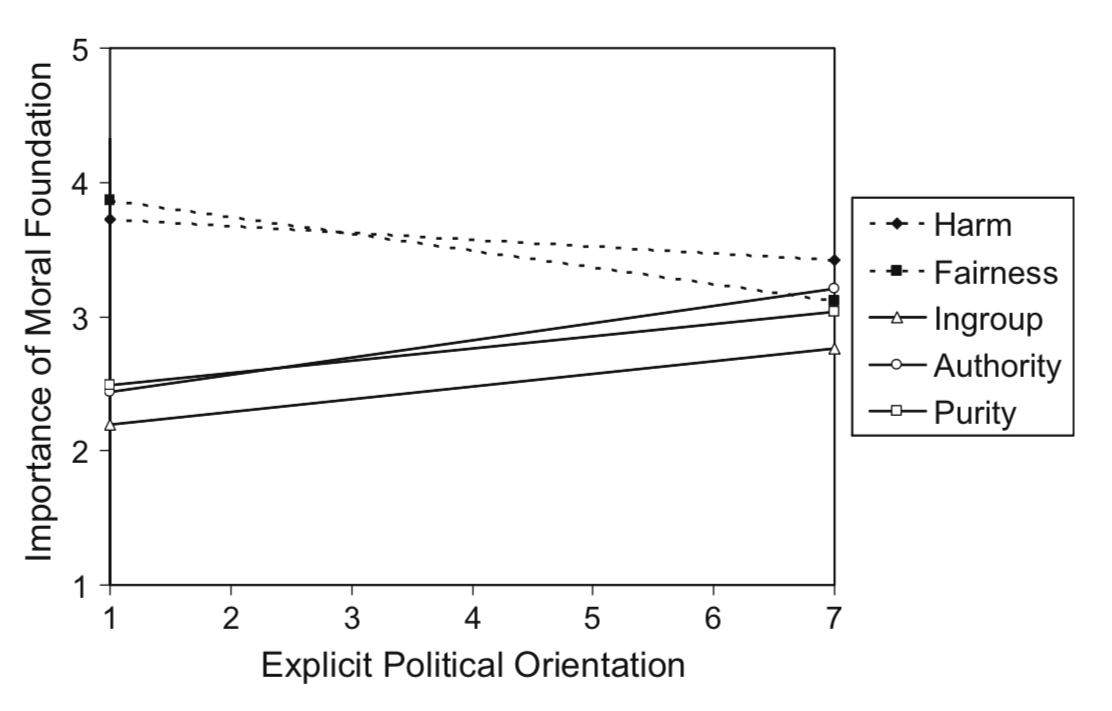
van Leeuwen & Parks, 2009 figure 1a

van Leeuwen & Parks, 2009 figure 1b
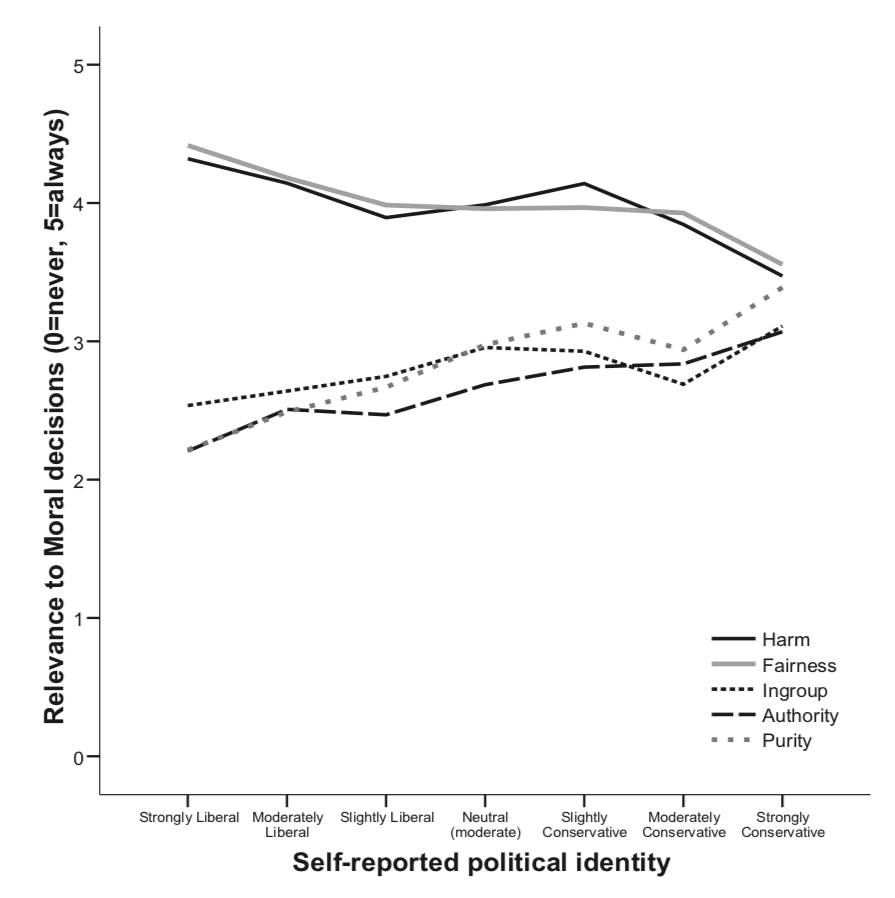
Graham et al, 2009 figure 1
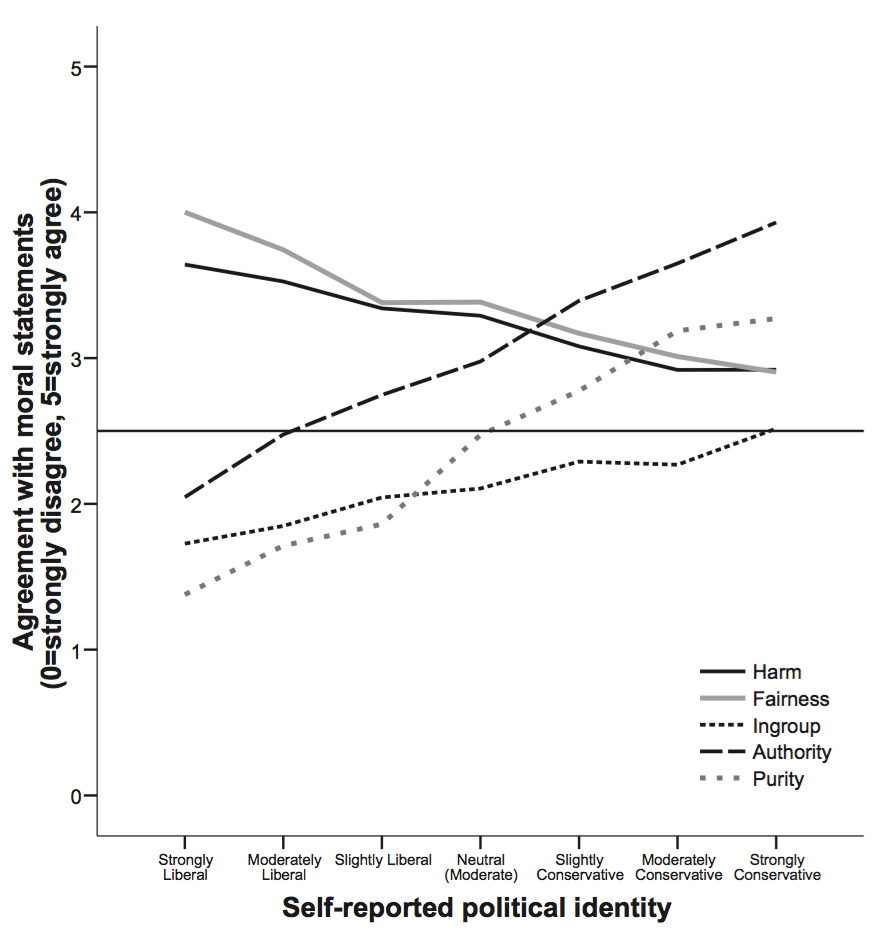
Graham et al, 2009 figure 3
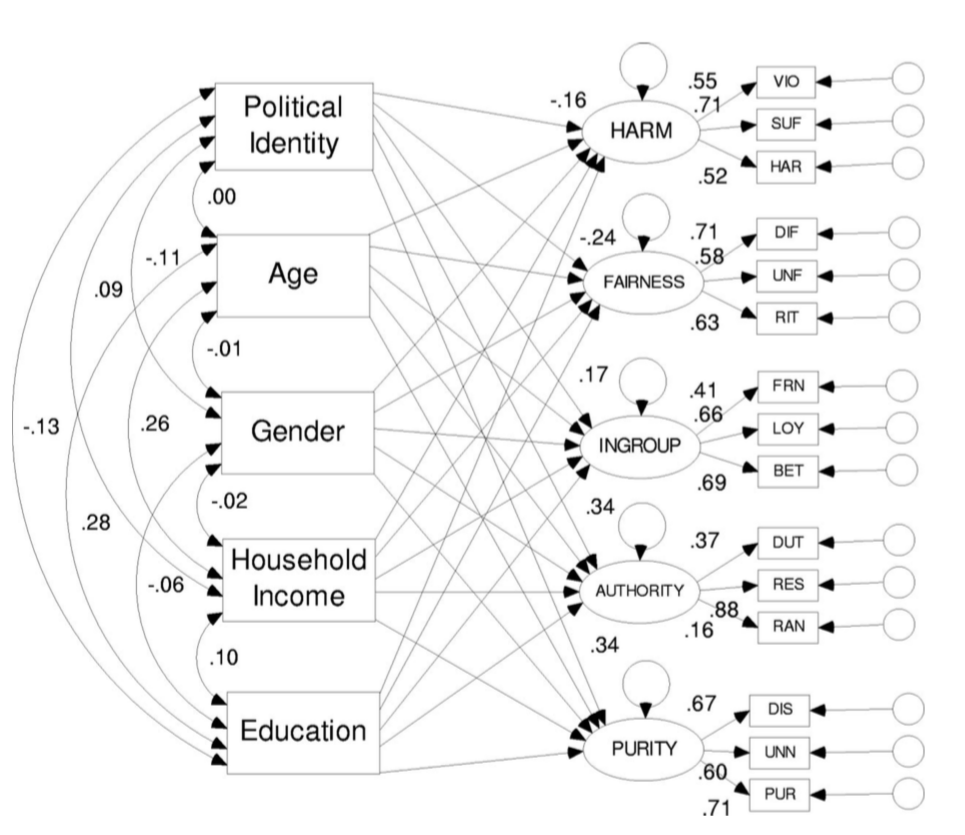
Graham et al, 2009 figure 2
metanalysis
‘care and fairness are generally negatively, and loyalty, authority, and sanctity, generally positively related to conservative political orientation’
(Kivikangas, Fernández-Castilla, Järvelä, Ravaja, & Lönnqvist, 2021, p. 77)
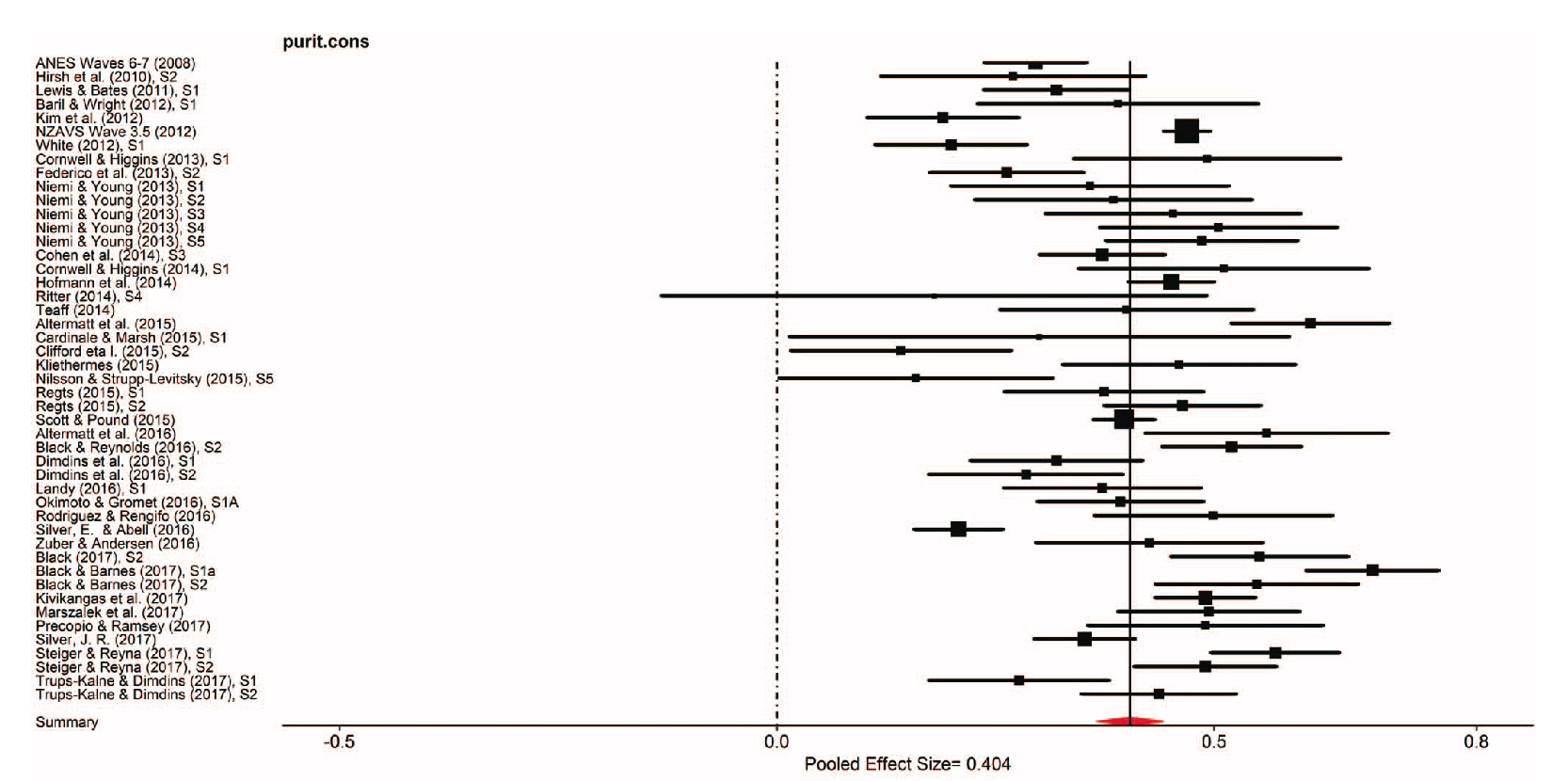
example:
purity
(Kivikangas et al., 2021, p. figure 6 (part))
3
‘liberals and conservatives possess different moral profiles regarding the five moral foundations’
Feinberg & Willer, 2013 p. 2
Is there any conflicting research? Yes!
3
‘liberals and conservatives possess different moral profiles regarding the five moral foundations’
Feinberg & Willer, 2013 p. 2